[If you saw To Sir with Love or read the book on which it's based, you know that the protagonist very quickly learned that racism was alive and well in the UK, just more often hidden behind a handshake than a white sheet. But read on, and you'll see that bigotry in the UK is also right in plain sight…]

by Mx. Kris Vyas-Myall
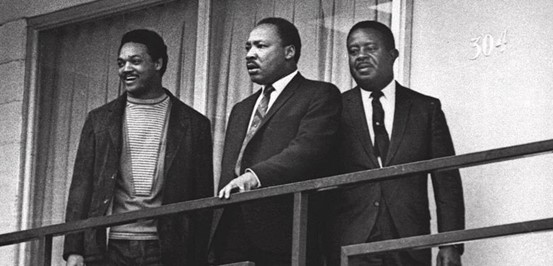
It has been over three weeks since the horrific assassination of Martin Luther King in Memphis, Tennessee, and it has continued to cast a focus on the Black Americans’ struggle for equal rights.
I, however, want to talk about an area that has not got as much focus here at the Journey. The current state of Race Relations in Britain.
The Long Arc of History
Whilst Black and Asian people have been recorded in Britain for centuries it is only in the last few decades that the numbers have been more than minuscule. This started first with the arrival of servicemen from across the Empire during the Second World War.
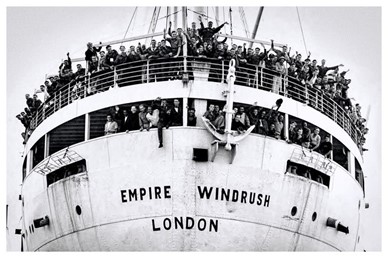
After the war ended, there was encouragement for people across the Empire to come to Britain to help with jobs, particularly in the newly nationalised transport and health sectors. Notable was the arrival of SS Windrush in June 1948, carrying 500 people from Jamaica.
This continued to increase in 1952, following the passing of the restrictive McCarran-Walter Act in the US, and the expansion of British passport availability in India in 1960. In response the Conservative government passed the Commonwealth Immigrants Act on 1st July 1962, adding quotas to immigrants from “New Commonwealth countries” (which, coincidentally, happen to be predominantly non-white).
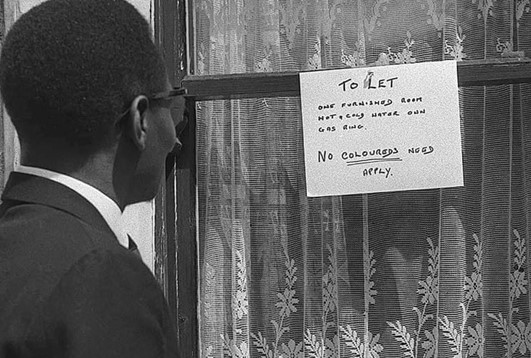
Life has not been easy for many immigrants. An unofficial colour bar exists that stops them from receiving service, getting jobs or fair housing. Meanwhile, racist attacks took place at the end of August 1958, in both Nottingham and London, over the relationship between a black man and a white woman (and where police did little to intervene).
In spite of this, middle class white liberals could pretend that things were only temporary and would improve soon. Racist attacks were condemned by even the old-fashioned judges and right-wing press, non-violent protests like The Bristol Bus Boycott helped produce some change, and the incoming Labour Government had promised to end the Commonwealth Immigrants Act.
But this all changed with Smethwick.
If You Want A Racist For A Neighbour, Vote Tory
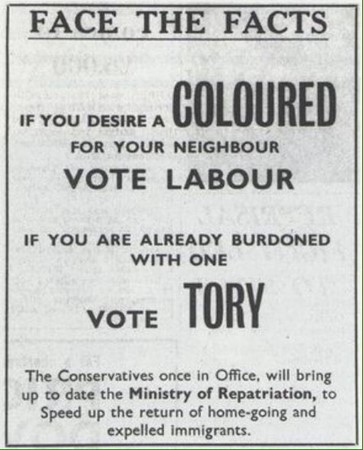
After scandals, stagnation and economic troubles it seemed obvious Labour would get in to power. One seat that would not seem to be of much notice was Smethwick, an industrial town near Birmingham held by Labour for almost 20 years with the Shadow Foreign Secretary as the MP with a comfortable 9 point majority.
However, Peter Griffiths was chosen as the candidate for the Conservative Party and ran on an anti-immigration platform, with supporters putting up posters with intents such as “Keep Britain White”. Whilst they were not distributed by the party, Griffiths (and indeed the central party) stated that they would not condemn people making these statements.

On election night, even though the whole country swung towards Labour by 6%, Griffiths won Smethwick by almost 2000 votes. Although some have suggested that this may have owed more to a resurgent Liberal Party candidate standing there for the first time since 1929 resulting in a vote split, at the very least it is certain that racist messaging did not put anyone off voting for Griffiths.
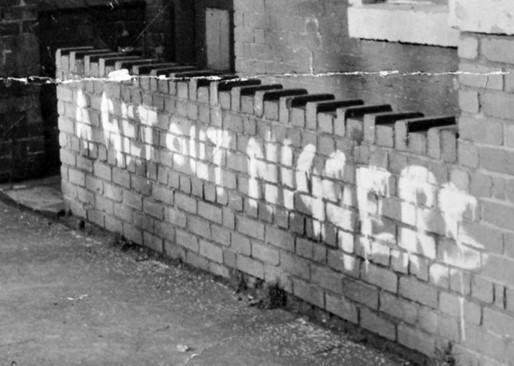
So, it was now impossible for anyone to truly pretend Britain was not a racist society. This had profound effects on Britain, the most obvious and immediate to the incoming Labour Government.
An Unsuccessful Balancing Act
Although winning the election, the loss of Smethwick, and gaining a majority of only 4, changed the direction of the Labour party. Not only was the policy of revoking the Commonwealth Immigrants Act dropped, in 1965 the quotas were tightened even further.
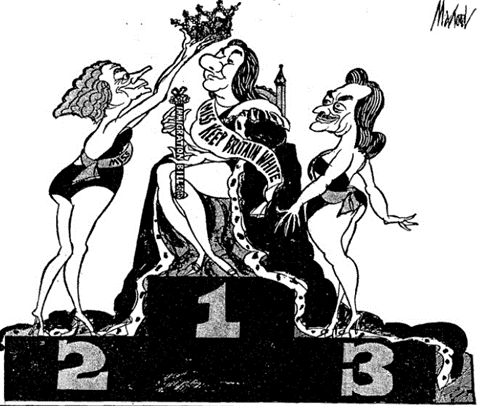
This was taken a step further earlier this year. Following the policies of Jomo Kenyatta, many Asians were fleeing from Kenya for refuge in Britain. After scare stories appearing about this, a new Commonwealth Immigrants Act was passed requiring demonstration of a “close connection” to Britain. Even the more right leaning publications condemned this move.
At the same time, the government attempted to address some of the concerns of the Black and Asian communities by instituting the Race Relations Act of 1965. This made it a civil offence to bar service or be discriminatory in this service to anyone on the grounds of “colour, race, ethic or national origin”. In addition it made Incitement to Racial Hatred a criminal offence.
However, the impact of this has been limited. It only covers discrimination in “places of public resort”, such as pubs or hotels, and leaves out key areas, such as housing, jobs and finance. In addition, the Race Relations boards created to oversee complaints have been set up very slowly and, those that are in existence, have proved incapable of making any meaningful impact in most cases.
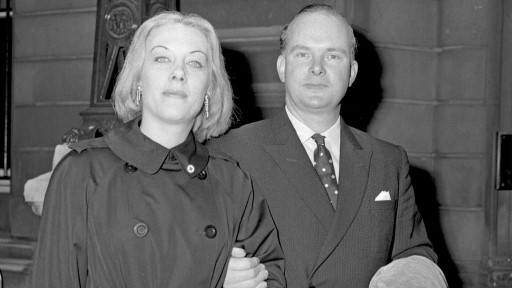
Although there have been some prosecutions on the grounds of Incitement to Racial Hatred, these have been few and far between, and were probably not what the affected communities were wanting. Whilst the leader of the British Nazi Party was sentenced to 18 months in prison on his second offence after distributing leaflets entitled “The Coloured Invasion” (he was fined previously for inciting arson on synagogues) other prosecutions have not been as successful. Christopher Britton was originally convicted for sticking a pamphlet to an MPs door saying “Black Not Wanted”, but this was quashed on the grounds that MPs and their families could not be treated the same way as the general public. And a group distributing a racist newspaper were not convicted on the grounds that the area they were distributing it in was predominantly White.
At the same time, harsh sentences have been handed out to Black activists for hyperbolic speeches. Michael X is in prison for describing White people as “nasty and vicious” and Roy Sawh was convicted for saying “we must band together and kill the White man” (more on both these people later). Given that during the passing of the act MPs asked questions to ensure that Black people could be prosecuted for making such statements, I cannot help but think this is not so much a flaw, but rather by design.
If Harold Wilson’s aim was to appease black activists and declaw the far-right, then he has utterly failed. The former seem to be more outraged and the latter emboldened.
The Whip Hand
If the government was in retreat after Smethwick, racist groups were in advance. In the election's aftermath, the British Ku Klux Klan was formed in Birmingham and cross burnings were reported that summer in towns only a couple of miles from Smethwick.
On the more overt political front, a merger of smaller far-right political groups, The League of Empire Loyalist, The British National Party and some parts of the Racial Preservation Society, have formed the National Front. This party is to attempt to be a more serious electoral force than previous groups, standing on a platform of “repatriation” of non-white people and supporting South African and Rhodesian governments.
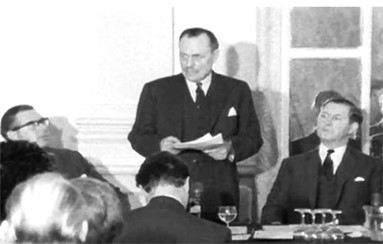
These events were, however, merely small rumblings of the main event to come out of Birmingham this month. Conservative Shadow Cabinet member Enoch Powell made the most incendiary speech made by any major MP in my lifetime, responding to the current debates on expanding the current Race Relations Act (predominantly designed to extend coverage to private property). Pulling out a couple of quotes to give you a flavour of his arguments:
“It is like watching a nation busily engaged in heaping up its own funeral pyre. So insane are we that we actually permit unmarried persons to immigrate for the purpose of founding a family with spouses and fiancés whom they have never seen.”
“For these dangerous and divisive elements the legislation proposed in the Race Relations Bill is the very pabulum they need to flourish. Here is the means of showing that the immigrant communities can organise to consolidate their members, to agitate and campaign against their fellow citizens, and to overawe and dominate the rest with the legal weapons which the ignorant and the ill-informed have provided. As I look ahead, I am filled with foreboding; like the Roman, I seem to see "the River Tiber foaming with much blood.""
Coming from such a high-profile MP, this has been front page news ever since, and the reactions have exposed a split in British society.
Powell was immediately fired from the shadow Cabinet and leaders of the three major parties condemned his speech, with an MP from his own party saying he has become the George Wallace of Britain. It should not be forgotten, however, that the Alabama Governor has supporters.
Many members of his own party also praised Powell’s speech for “raising important issues” and his own local party membership affirmed support of him (although given a club in his town officially voted to allow only white members, Wolverhampton is proving to be one of the less progressive areas of the country).
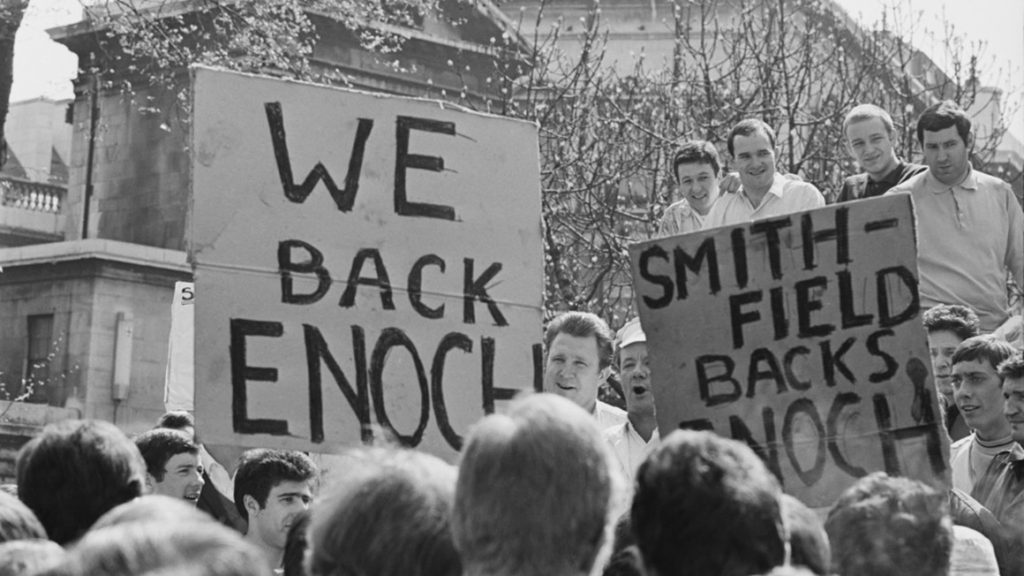
More troubling is that some workers have gone on strike to show their opposition to Powell’s suspension, and over 1,000 Dock Workers marched to parliament holding up slogans such as “Don’t knock Enoch”.
Opinions polls on this issue appear to be all over the place. Before Powell’s speech, one showed 58% of people agreed with the provisions of the new Race Relations Act. However, in the immediate aftermath one reportedly showed that 74% of the population agreed with the content of Powell’s speech. Whilst it is possible a third of the population drastically changed their opinions, I think it is more likely that there is a large section of the British public that hold contradictory views about race and equality, and it will depend how you ask the question.
However, it should not be thought that the minority populations of the UK have been sitting passively whilst this has been happening. Many have been looking to fight back!
I'm Going to Build Me a Heaven of My Own
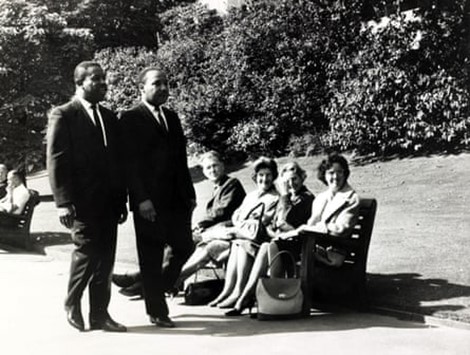
As it was impossible to deny that Britain wasn't immune to the racism seen in America, the first ideas were for an American style response. Inspired by a visit of Martin Luther King in December 1964, Campaign Against Racial Discrimination (CARD) was formed. Designed to be a broad organisation like NAACP or SCLC in the US.
Although it has been one of the largest organisations pushing for racial equality and at the forefront of media coverage, it has not proved as effective as the American equivalents for a few reasons. First off, rather than external direct action, it has focused on lobbying and had strong connections with Members of Parliament, as such it has been seen by some as the voice of the establishment. Secondly, whilst there have been some important organisations working with CARD (most notably the Indian Workers Association) there is simply not the breadth of pre-existing groups in the UK compared to the US, primarily because many of the people affected have only been in the country for less than a decade. Finally, many of the leadership members were White and the overwhelming majority of them were middle class. As such, they could often be seen as coming from a privileged position compared with the average Black person.*
*NB: Unless the group is specified otherwise I will often be using "Black" as a signifier of non-White membership. The reason for this is that membership of explicitly Black groups commonly consists of many Asian people along with other ethnicities. It has come in the UK to have a political meaning among these groups beyond claiming African heritage.
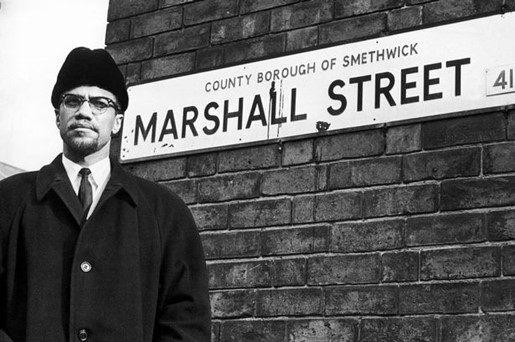
Martin Luther King was not the only major American civil rights figure to visit Britain in the aftermath of the Smethwick election. Malcolm X came to the UK in February 1965 and even took time in his schedule to visit the constituency, following an invitation from the IWA. Whilst he was tragically assassinated 9 days later, his visit had an impact on many.
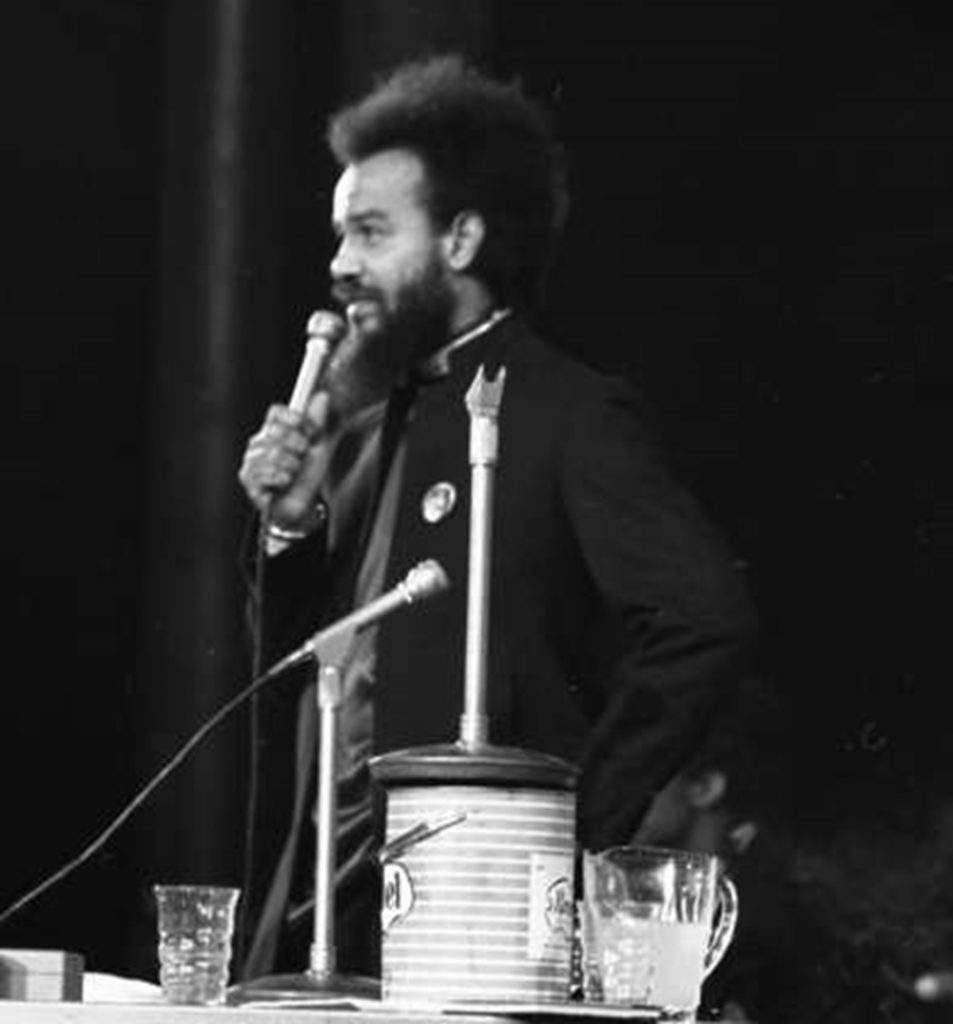
One such person is Michael X (taking his name from his hero) who heard Malcolm speak and was inspired to found his own organisation, the Racial Adjustment Action Society (RAAS). Whilst his organisation remained small, it had an outsized impact thanks to Michael’s ability to court press coverage, such as getting the Nation of Islam to employ him as a chaperone to Muhammed Ali in 1966, and running of local social welfare programmes, such as a day nursery and black barbers. If the authorities hoped his arrest would reduce his profile, this backfired enormously. Even those Black activists who previously criticised him as self-aggrandizing are angry at his unjust imprisonment.
There has been a further growth in Black British civil rights groups starting last summer. The first, and perhaps most important of these, has been the formation of the Universal Coloured People’s Association (UCPA) by Obi Egbuna. Egbuna is a playwright and activist who had been part of Committee of African Organisations that had organised Malcolm X’s trip to Britain. Partially inspired by what he had seen at SNCC in America, Egbuna wanted the same kind of energy in the British scene.
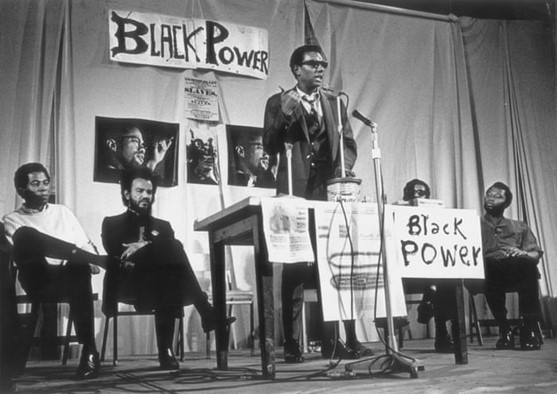
This was formed around the same time as the Dialectics of Liberation took place in London: a two-week event that hosted many major figures from the US counterculture. One such speaker was the major figure in the Civil Rights movement, Stokely Carmichael. Even though he was asked to leave the country and had to cancel a planned meeting with RAAS, his influence was keenly felt.
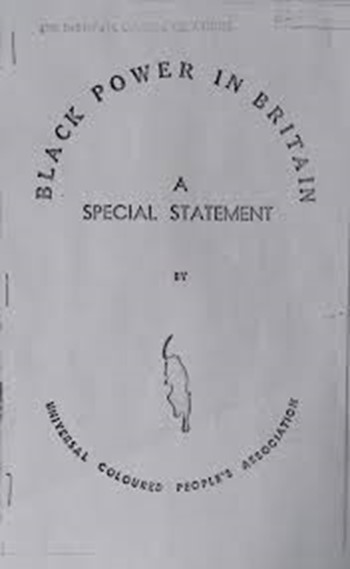
Just a few weeks afterwards the UCPA published Black Power in Britain. Inside we can see how far they are from the more establishment lobbying approach taken by CARD:
We know the only difference between the Ian Smiths and Harold Wilsons of the white world is not a difference in principle but a difference in tactics, it is not a quarrel between fascism and anti-fascism but a quarrel between frankness and hypocrisy with a fascist framework.
The Black Panther on the cover is not merely stylistic, either. Inside they also contain their own ten-point programme and Egbuna recently broke away to form The British Black Panther Party. (Its former deputy Roy Sawh had also broken away to form United Coloured People and Arab Association before his arrest).
Perhaps the biggest sign of this new militant stance among some in the Black community was also in July last year, at CARD’s annual meeting. There, the members voted off the entire leadership panel and they were replaced by more radical activists.
It should be noted that when I use the terms “radical” and “militant”, I am merely talking in terms of a contrast with the mainstream white liberal efforts for equality via the legislative route. There has been no evidence of any violence or plans for revolution among any that have been investigated and we are certainly far away from any attempts at armed struggle.
Instead, they are primarily concerned with setting up their own support networks where they feel the system has let them down. Islington’s branch of CARD sends out unarmed groups to patrol the streets in order to help lower crime and monitor incidents of police misconduct. Self-defence classes in martial arts have been created to ensure young black people can hold their own against racist attackers, but not for any attacks of their own. Social programmes like those set up by RAAS are being expanded by other groups.
Even with all these groups and splits there does not appear to be any evidence of factionalism yet. Today there has been the announcement of the formation of the Black People’s Alliance where a variety of ethnicities and issues are to be addressed without conflict, whether those be domestic or international. Another important point to note is that whilst inspiration is taken from American movements, these are not merely Xeroxed. Many of those involved also take from their own experiences, anti-colonial movements and even touches of Maoism.
Where to now?
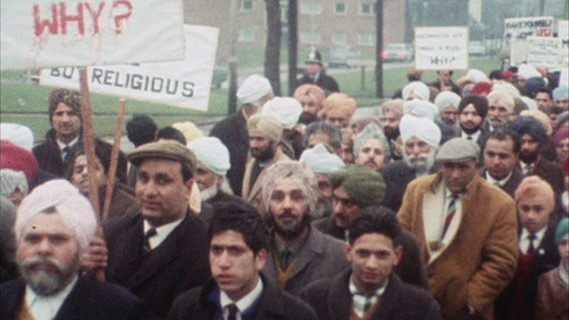
Whilst reactionary groups and Black Power advocates indeed seem to be gathering strength, it should be noted that neither yet appear to reflect broad swathes of the population. Most of the above mentioned civil rights groups have only small membership to date and the thousand London dock workers marching for Enoch were dwarfed by the four thousand Sikhs peacefully marching in his own constituency to allow bus drivers to keep beards and turbans for religious reasons.
And although the problematic Asian Kenyan Immigration bill passed, so did the Race Relations Act that Powell so objected to. In addition, recently Harold Wilson has been hinting extra funding would be going to areas with larger non-white populations in order to help address some of the problems seen by its residents.
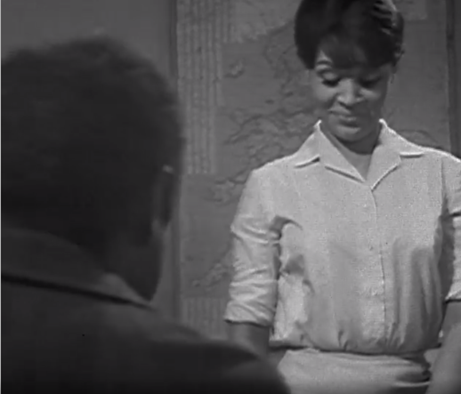
Given that last year we had the airing of the first British drama series with a predominantly Black cast (the wonderful Rainbow City) and Tyne Tees TV employed Clyde Alleyne as the first black reporter [not to mention Fariah in a recent Doctor Who serial (ed.)], is the slow and steady approach going to be the one that wins out? Or is a more radical approach the one that is required?
I am sure we will find out soon. As an article on the subject in The Times said:
For black men are not simply in search of power. They are also in search of justice.

![[April 28, 1968] Chimes of Freedom or Rivers of Blood? (Race Relations in the UK)](https://galacticjourney.org/wp-content/uploads/2023/04/RRUK-14-557x372.jpg)

![[April 6, 1968] The mountain of despair (the murder of Dr. Martin Luther King, Jr.)](https://galacticjourney.org/wp-content/uploads/2023/04/680406mountaintop-672x372.jpg)













